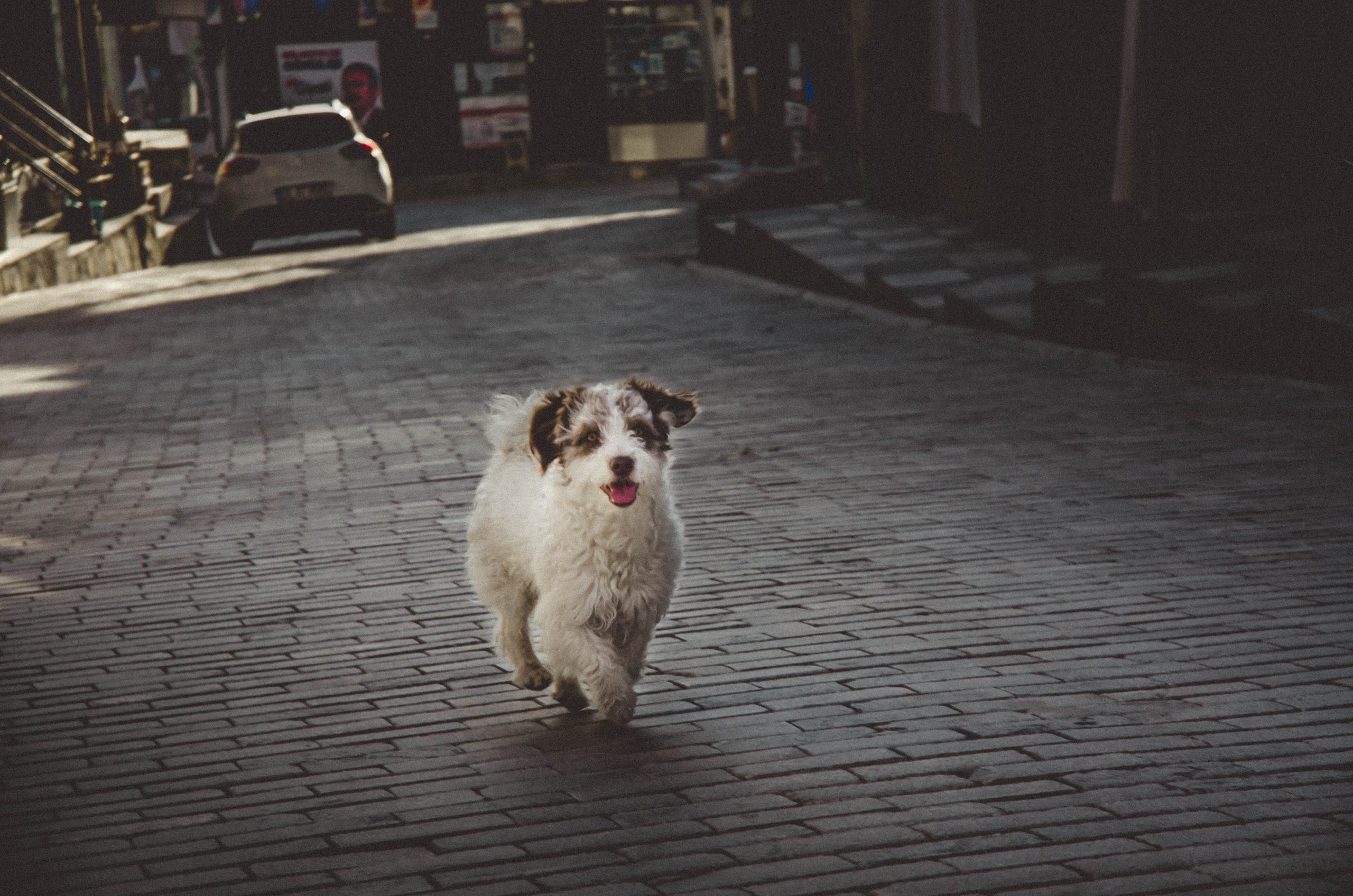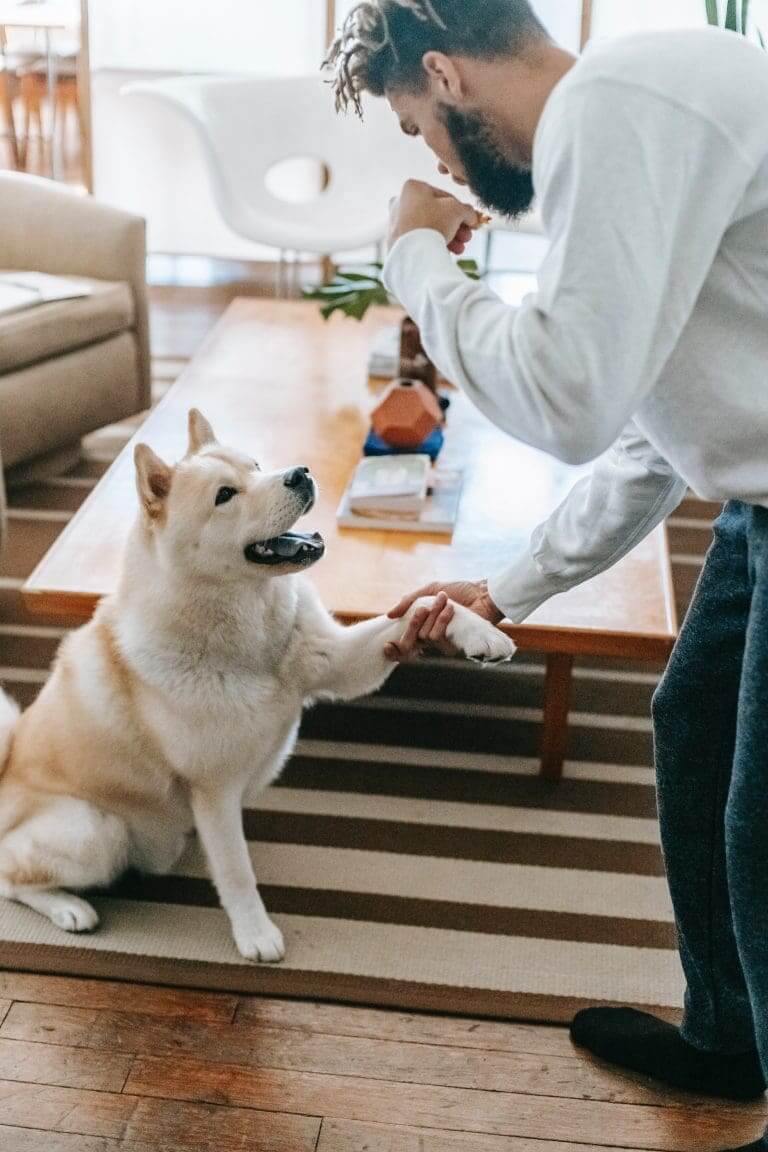Why Does My Dog Sleep On Me And Not My Husband?
Post Date:
December 10, 2024
(Date Last Modified: December 10, 2024)
Many dog owners find it intriguing when their furry friends choose to sleep on one person rather than another. This behavior raises questions about attachment and comfort. When a dog opts to curl up next to you instead of your husband, several factors may be at play.
The Bond of Care
Dogs forge strong attachments with those who care for them. If you’re the primary caregiver—feeding, walking, and engaging with your dog—it’s likely they associate you with positive experiences. This bond prompts them to seek comfort in your presence, particularly during sleep. Your warmth and familiarity provide a sense of security that can be especially comforting during rest.
Past Experiences Matter
A dog’s past experiences significantly shape their sleeping habits. If your dog has enjoyed snuggling with you or received gentle affection while you relax, they may associate you with safety and comfort. In contrast, if your husband has been less involved in nurturing activities, the connection may not be as strong. Dogs are keen observers of emotional cues and may feel more at ease with you because of these interactions.
Individual Personality Traits
Every dog has a unique personality that influences behavior. Some dogs naturally seek closeness and affection, while others may prefer independence. If your dog enjoys cuddling, they are likely to gravitate towards you. If your husband is more reserved or less physically affectionate, your pet may not feel the same urge to snuggle with him. Acknowledging these differences is essential as they contribute to your dog’s individuality.
Household Dynamics
The dynamics within your household can also influence your dog’s sleeping habits. If you spend more time at home or engage in activities with your dog, they may feel more secure sleeping near you. Dogs tend to choose to rest next to the person they perceive as their primary caregiver, a role that can shift based on daily routines.
Unintentional Cues
Unintentional cues can impact your dog’s choice of sleeping location. If you exhibit more nurturing behaviors, such as offering treats or engaging in play, your dog may associate these actions with comfort during sleep. Conversely, if your husband is less involved, your dog might not feel the same inclination to snuggle with him.
The Comfort of Routine
Dogs thrive on routine. If your dog has developed a habit of sleeping with you, they are likely to continue this behavior because of familiarity. Consistent interactions that allow your dog to sleep next to you can reinforce their bond and make it harder for them to shift their sleeping patterns.
Environmental Comfort
The environment can significantly influence your dog’s sleeping preferences. A cozy blanket or a soft surface where you frequently cuddle may naturally attract your dog to you. If your husband’s sleeping area is less inviting, your dog might simply prefer the comfort you offer.
Protective Instincts
If there are children in the household, your dog may choose to sleep near you for protection. Dogs are naturally protective and often feel a heightened sense of duty regarding children. If you typically interact with and supervise the kids, your dog may instinctively seek your presence during sleep to ensure safety for the entire family.
Addressing Fear and Anxiety
Fear or anxiety can also affect a dog’s sleep patterns. If your dog has faced stressful situations in the past, they might seek comfort in the presence of their primary caregiver. If you are the calming presence in the household, your dog may feel safer resting next to you. Creating a secure environment and providing reassurance during stressful times can help alleviate their fears.
The Influence of Scent
A dog’s extraordinary sense of smell plays a crucial role in their choice of sleeping partner. Familiar scents can evoke feelings of safety and comfort. If you possess a scent that your dog associates with love and security, they are more likely to seek you out during sleep. This connection can stem from the smell of your skin, clothing, or even your hair products.
Fostering Balanced Relationships
While it can be disheartening if your dog seems to prefer sleeping with you, it’s vital to understand this behavior isn’t necessarily a reflection of favoritism. Dogs respond to their instincts, preferences, and past experiences rather than making conscious choices about whom they prefer.
Encouraging your husband to engage in more interactive activities with your dog—like playing fetch or going for walks—can help foster a more balanced relationship. Positive experiences shared between them can lead to increased comfort and may gradually shift your dog’s sleeping habits.
Emotional States Matter
Dogs can exhibit different preferences based on their mood or health. Just as humans may change their sleeping arrangements depending on how they feel, dogs can also alter their habits based on comfort levels. If your dog consistently prefers your company at night, it might reflect their overall emotional state rather than a permanent division in affection.
Cherishing the Bond
Understanding your dog’s sleeping preferences offers insights into their personality and the unique bond you share. Whether your dog chooses to sleep on you, your husband, or even on the floor, what truly matters is the love and companionship you provide each other. Embracing these moments can nurture this connection and create a harmonious environment for everyone involved.






